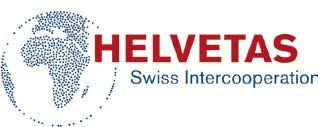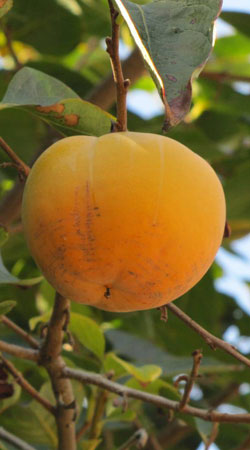The objective of Outcome 3 is to achieve “Increased income through receiving higher prices for higher quality labelled, packaged and graded fruits.” Overall vision of Outcome 3 is to support access of higher quality labelled, packaged and graded fruits to higher value markets including retail (supermarkets), processing and export.
Meghri farmers can increase their incomes through:
- Selling larger quantities of up-to-date cultivated fresh fruit due to improve coordination among them;
- Selling at the higher price to supermarkets that brings farmers higher farm gate price due to grading, sorting, labelling and packaging;
- Selling bigger volumes of the low quality fruit to processors operating in other regions of Armenia;
- Increasing the profitability of their fruit-growing businesses through cost reduction and/or better post-harvest management techniques/facilities, etc.
Aside from increasing production and yields, farmers can expect to raise their incomes through receiving higher prices for higher quality fruits. This impact is expected to be created through several key routes. The most important route, and the focus of Project’s Outcome 3, is increased revenues from fig, persimmon and pomegranate farming through using advanced marketing tools and techniques. The current Outcome concentrates on ensuring that some of the extra value created through the consumer’s readiness to pay a higher price for higher quality labelled, graded and packaged fruit is shared with the farmer through traders/supermarkets/exporters (fair distribution of profit among value chain players) as well as introducing new sources of income generation and ensuring successful market penetration for new crops/verities.
As such, one element of the Outcome’s interventions is improving post-harvest management at farm level along with raising the farmers’ bargaining power by enhancing their negotiating skills and increasing access to high-value markets. By developing/promoting the practice of crops’ sorting, labelling, grading and, of course, so called “passport system” the Project can create possible base which will later enable farmers to get at least 20% higher price for premium quality labelled, sorted and graded products[1].
Another element is ensuring that value is not lost when high quality fruit is transported to market. Inadequate packaging and lack of cold transport means fruit can be damaged or even get destroyed in transit. This will entail working with traders, intermediaries or farmers to improve their practices and technologies.
Project will also support development of post-harvest management techniques as well as facilitate establishment of on-farm cold storages/cellars to ensure proper maintenance of the produce for later after season sales, hence enabling farmers to increase their income from sold fruits for two times.
Project plans to achieve the overall objective and vision of Outcome 3 via four main interventions:
- Improvement of access to high-value market channels – which will be implemented through the following main activities: Improved commercial linkages between farmers and buyers, long-term business relationships built on trust, i.e. improved B2B linkages between potential corporate buyers (supermarkets, processing companies and exporters) and farmers. For the implementation of these activities the main partners from Meghri region will be lead farmers and intermediaries/retailers (who will take on a coordination/aggregation function) working with private companies/agents from all regions of Armenia. Potential foreign markets/buyers interested in Meghri produce can be mostly those countries where Armenian Diaspora is comparatively big (e.g. Russian Federation, Ukraine and some states of USA) and food safety standards are relatively mild. Through facilitating B2B linkages between farmers and buyers as a result Project anticipates increased number of new market players and business oriented farmers operating in Meghri region.
- Improvement of VCOs marketing skills – an obvious advantage of marketing is the promotion of one’s business; getting the recognition and attention[2]. Every business needs to “spend money to make money” and Project will make its partners (lead farmers, traders) to acknowledge that. The most important advantage of marketing is therefore quite simply improving the businesses profits by boosting sales. As such, Project plans to work with VCOs namely lead farmers and traders to improve their marketing skills which will automatically lead to better negotiation and trading skills which will lead to income increase. Simultaneously Project will promote creation of crops’ classification or grading (Extra or Premium, 1st, 2nd and 3rd grade product) system working with lead farmers and traders as well as with supermarkets for stating the standards for grading. Project with ASC, WRC and traders/exporters/retailers (supermarkets) as well as with development organizations will implement the current intervention covering most of expenditures and starting from 2016 ASC, WRC or any VCO interested in doing business in Meghri will conduct the activity while farmers with traders/exporters/retailers (supermarkets) will cover all fees.
- Improvement of post-harvest management techniques and skills – Project plans to support business investments into establishment of a functioning fresh/cold chain in order to reduce post-harvest losses. Project’s main partners for this intervention will be lead farmers and traders. The construction costs for a functioning cold chain (e.g. on-farm cold storage) will be covered mostly by storage owner that might be a farmer or farm group with a minor financial and technical support from the Project side. As soon as the first demo cold storages in each community are established and cost-effectiveness analysis prove the benefits of cold storages’ operation other farmers will start to consider establishment of similar storages with possible support from traders/retailers (e.g. supermarkets) that they are cooperating with offering/providing them in-demand fresh produce not only for the certain season. As such, establishment of cold storage system can be additional source for income increase for farmers enabling them to maintain their produce for after season sales for significantly higher prices.
- Promotion of development of local commercial processors – Project is planning to support group of women farmers for developing small-scale and home based processing and Project will facilitate their access to certain niche markets. As a kick-start for above mentioned micro-businesses small start-up grants can be considered along with a business advice on market access and negotiation skills. Key partners for the current intervention will be women farmers, traders, supermarkets and development organizations (e.g. SMEDNC, USAID, IFC, World Vision Armenia, etc.)[3]. Within the framework of “increasing local processing of fruits in Meghri” activity M4M Project with SMEDNC will conduct training for specialists involved in fruit processing (i.e. drying) and discussion on technological aspects of fruit drying in Meghri. As a partner for Project also WRC or other appropriate and interested organization can be considered who will provide training on dried fruit marketing techniques with the Project’s direct support. Project anticipates that once small-scale home-based fruit processing is improved demand and therefore price for processing fruits will increase which will automatically lead to income increase for farmers. Initially costs will be covered by partner organizations and Project. Later on group of producers and/or traders/retailers/exporters (that directly work with the group of producers) will cover the expenses for being offered with the required quality and quantity of produce.
All the above stated interventions by the end lead to the shift from low-value markets to high-value markets through functioning B2B linkages, improved marketing approach, advanced post-harvest management facilities and aggregation of produce.
Project interventions and partners in the Outcome 3
|
Project intervention |
List of activities in general (strategic level) |
List of detailed activities (operational level) |
Project’s main partners |
Intensity of support |
| Support the establishment of improved commercial linkages between farmers and buyers (traders, processors, facilitate better exchange of information.
|
Conduct assessment of market potential, competitive environment and through value chain analysis to identify bottlenecks
Identify and provide technical support to national level retail/export companies and processors to improve market linkages with suppliers in Meghri region Improve access to high-value market channels via improving commercial linkages between farmers and buyers and VCOs marketing skills |
Document a comprehensive supply chain analysis to identify VC actors and their volumes
Exploring quality differentiation practices Investigate supermarkets’, exporters’ & international practices Train & coach farmers in integrating quality requirements Produce quality requirement posters or leaflets Creating brand label for targeted crops Developing label Considering brand’s ownership Conducting PR actions for export promotion Organizing buyer-seller meetings, i.e. round table meetings among farmers, traders, exporters, processors, supermarkets Support the regular (e.g. monthly) meetings between VCO; Analyze the performance of the chain regarding development of trustful and long-term relationships between VCOs |
VCO (lead farmers, processors, traders, retailers, exporters)
Consulting companies Development organizations Logistics service providers, Consulting companies Retailers, VCO (lead farmers, processors, traders, retailers, exporters) |
Active
Moderate Moderate |
| Support the development of better organizational structures and capacities (such as collection, storage, bargaining skills, grading etc.) at farm level in Meghri in order to improve access to higher value markets.
|
Facilitate establishment of a postharvest handling process (cold chain) including storage facilities, handling, transportation
Facilitate through technical advice and limited financial support investments into storage capacities, collection, packaging etc. Support improved coordination among farmers and small-scale processors in Meghri to allow for better access to larger buyers (awareness and capacity building) |
Explore practices of existing collection centres operating in the country
Providing technical and financial support for the establishment and management of on-farm cold storages as well as train and coach farmers in grading, sorting, labelling and packaging techniques Increase demand for low quality fruits through processing Explore opportunities for developing crop’s processing (namely drying) facilities at farm-level Business support to Meghri Cannery and other processors for improving processing facilities |
Farmers, Logistics SP; VCOs,
Development organizations VCO (lead farmers, processors, traders, retailers, exporters) WRC ASC Development organizations |
Moderate
Moderate |
[1] According to data analysis of the intervention within the framework of the pilot project of M4M Phase I. Figures are identified both with the farmers and supermarkets.
[2] Going hand-in-hand with this is the enhanced brand recognition. This option will be piloted under Outcome 3 as “Meghri Fruit” brand (the continuation of the pilot project of M4M Phase I).
[3] M4M Project on behalf of CARD Foundation agreed with Small & Medium Entrepreneurship Development National Centre (SMEDNC) and USAID “Enterprise Development & Market Competitiveness” Project to cooperate on increasing and developing local processing in Meghri Region. As the partners for this activity also International Finance Corporation (IFC) and World Vision Armenia are considered for providing technical/informational assistance.












